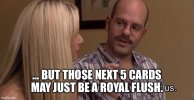OKC just won a championship. They provided a very good realistic template for the Jazz on how to assemble a contender: OKC is a small-market team in a less-then-desirable city without a rich owner. They won by having an MVP-level player (SGA)+ 2 All-Stars (Williams, Holmgren)+ 3 above-average-starters (Hartenstein, Caruso, Dort) + quality bench (Wallace, Jaylin Williams, Wiggins, Joe). Of note, the Thunder has only two large 30+ million contracts in SGA and Hartenstein.
Now, lets look at what the Jazz have. We can argue that in the best case scenario Lauri would be equal to Jalen Williams and Kessler can become our Hartenstein. Being very optimistic again, we can argue that the group of Hendricks, Collier, Cody and Flip can produce 1 above-average starter and 2 quality bench players. Even if everything goes right the Jazz are still short of an MVP-level player (SGA), a second All-Star (Holmgren), 1 above-average starter and a couple of quality bench players.
What's more, keeping Lauri and Kessler means that the Jazz already have their two big contracts by paying them. That means that the only realistic scenario for the Jazz to become realistic contenders is for Ace +2026 pick to reach the level of SGA and Holmgren in 3-4 years, while still being on their rookie contracts. And that the Jazz will somehow successfully pick up or develop several key role players (Caruso, Wallace).
Now, how realistic is that? It looks like paying Lauri and Kessler big money really constricts realistic options for the Jazz to become real contenders with them on the roster. And trading one or both of them would not help much either: the Jazz will have to replace their production with someone else. It does not make me very optimistic about the Jazz becoming a real contender any time soon. Can anyone point out the holes in my reasoning and show that the Jazz do in fact have a realistic path to contending?
Now, lets look at what the Jazz have. We can argue that in the best case scenario Lauri would be equal to Jalen Williams and Kessler can become our Hartenstein. Being very optimistic again, we can argue that the group of Hendricks, Collier, Cody and Flip can produce 1 above-average starter and 2 quality bench players. Even if everything goes right the Jazz are still short of an MVP-level player (SGA), a second All-Star (Holmgren), 1 above-average starter and a couple of quality bench players.
What's more, keeping Lauri and Kessler means that the Jazz already have their two big contracts by paying them. That means that the only realistic scenario for the Jazz to become realistic contenders is for Ace +2026 pick to reach the level of SGA and Holmgren in 3-4 years, while still being on their rookie contracts. And that the Jazz will somehow successfully pick up or develop several key role players (Caruso, Wallace).
Now, how realistic is that? It looks like paying Lauri and Kessler big money really constricts realistic options for the Jazz to become real contenders with them on the roster. And trading one or both of them would not help much either: the Jazz will have to replace their production with someone else. It does not make me very optimistic about the Jazz becoming a real contender any time soon. Can anyone point out the holes in my reasoning and show that the Jazz do in fact have a realistic path to contending?
Last edited:

